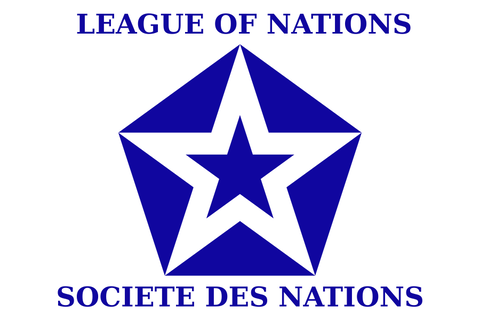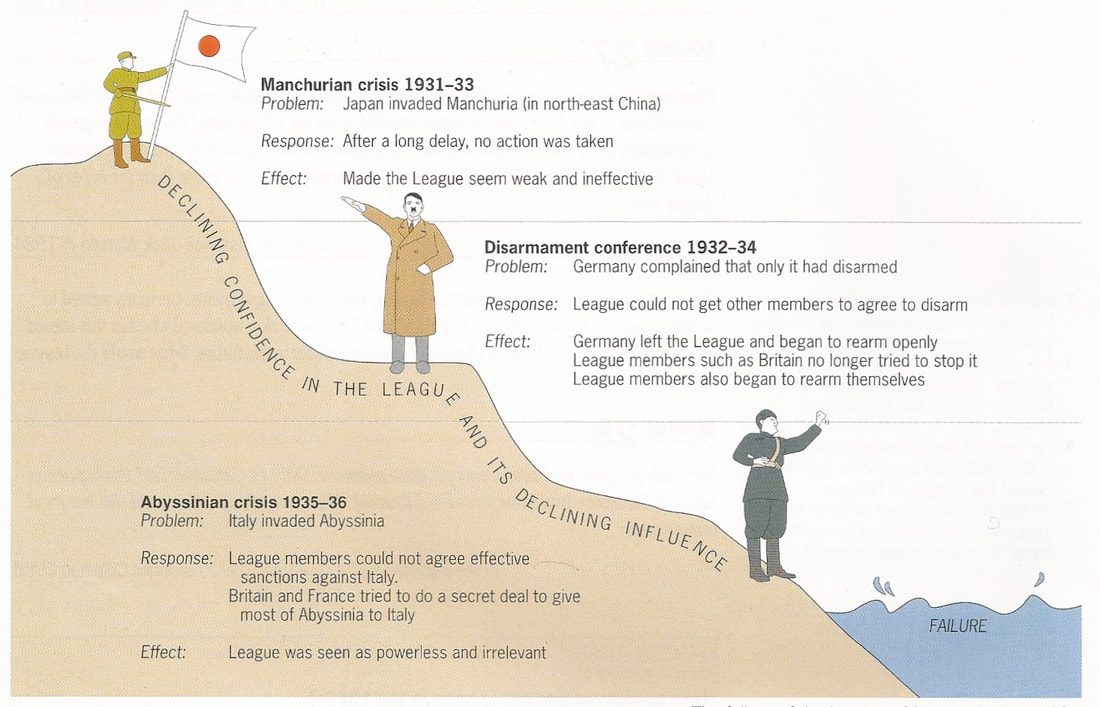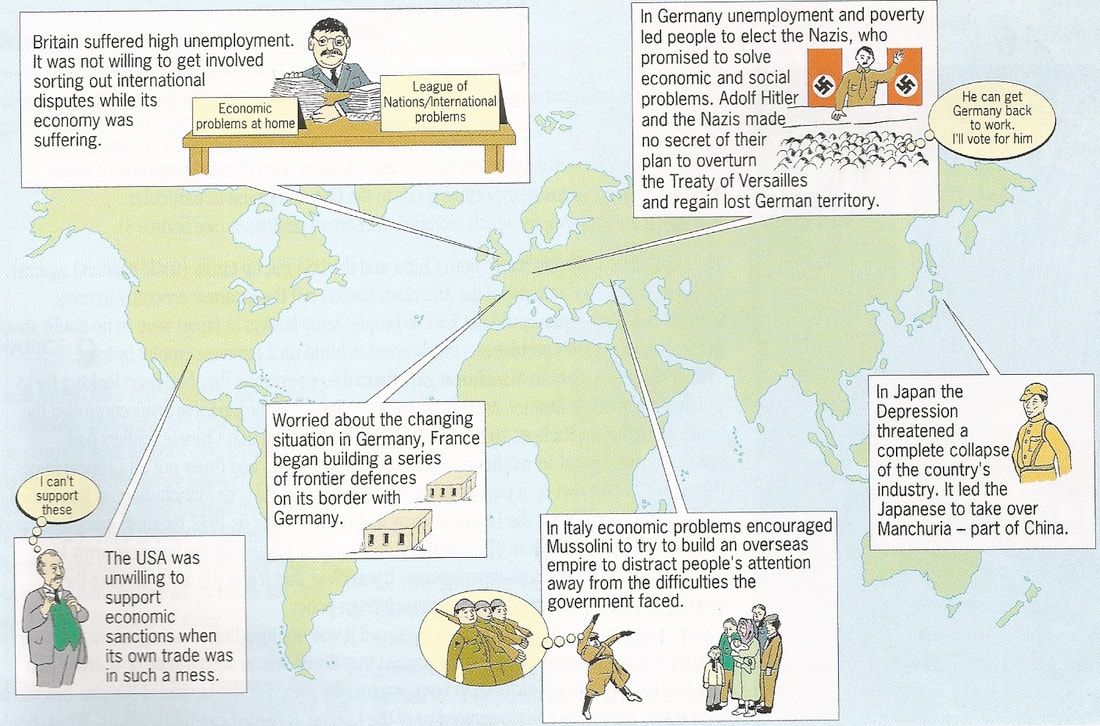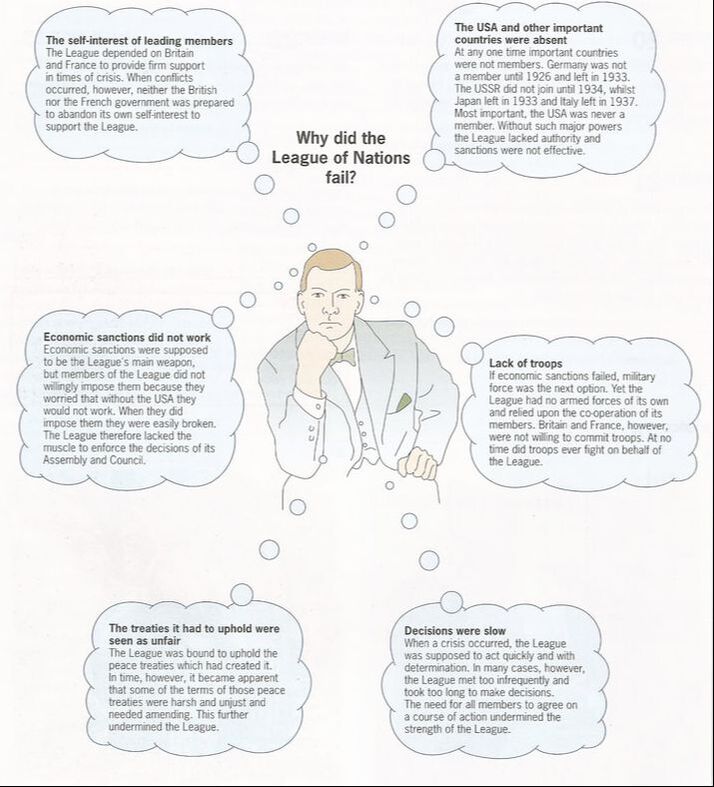Lesson 2 - The League of Nations
A good place to begin is to read through this official, illustrated history of the League of Nations provided by the United Nations website.
A good place to begin is to read through this official, illustrated history of the League of Nations provided by the United Nations website.
|
Links: John D Clare on the weaknesses of the League and BBC Bitesize
|
Activity 1 - Watch the video 'International Relations, Weaknesses in the foundation and structure of the League of Nations'. Read textbook 234-5. What were the main structural weaknesses of the League of Nations?
|
|
|
Activity 2 - Watch the video International Relations, The League of Nations in the 1920s'. How did the actions of Britain and France undermine the Treaty of Versailles?
|
The League of Nations under pressure - Manchuria and Abyssinia
|
Kognity on Manchurian Crisis
|
Kognity on the Abyssinia Crisis
|
Activity 3 - Watch the two films above about the Manchurian and Abyssinian crises and consider the diagrams. Write 300-400 words explaining why the League of Nations gradually lost influence in the 1930s. IB students will return to both these important events later, but the more effort and thought you put into this now the better.
Extension and IB 'Road to Global War'.
|
|
Activity - Watch the film from the People's Century series. Explain, with examples, how the dominant mood of Europe in the interwar years was one of pacifism and a desire for disarmament. Why in the 1930s did the rise of Hitler and Mussolini present serious problems for the League of Nations? Churchill is shown in the film warning that war was coming. Why did so many people continue to believe war could be avoided? |
|
|
The Rise and Fall of the League of Nations Looks at the rise of the League of Nations after World War 1 and how the absence of Russia and USA as members and the League's failure to take decisive action over the Japanese invasion of Manchuria led to its eventual failure as a force for world peace. This film was first broadcast by ITV: 13 March 1991 |




